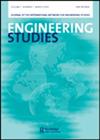工程师的社会化、隐性知识与“经验”概念
IF 1.3
3区 工程技术
Q2 EDUCATION, SCIENTIFIC DISCIPLINES
引用次数: 5
摘要
工程师重视本科生的研究经验,认为这是成为工程师的重要一步。然而,“经验”一词在这种情况下的含义并不明确。我们通过对工程系教员、研究生和本科生的定性访谈,确定了他们认为与工程相关的四类经验:(1)实践经验:类似于工程职业和研究生院工作的“现实世界”技能和机会,(2)社会经验:与团队合作的人际方面,包括行为和沟通规范;(3)职业经验:在特定工作之外对学生生活有用的技能和机会,如如何管理他们的时间;(4)认识经验:学习和应用抽象工程知识。通过根据教职员工和学生谈论本科生研究的方式推导出“经验”的类型,这项研究深入了解了大学工程师如何理解工程专业知识、专业化和协作。反思一个好工程师需要什么样的“经验”,也揭示了导师和新手之间的权力动态,以及初级工程师作为劳动者和学习者有时相互冲突的角色之间的权力。本文章由计算机程序翻译,如有差异,请以英文原文为准。
Socialization, Tacit Knowledge, and Conceptions of ‘Experience’ among Engineers
Engineers value undergraduate research experience as an important step towards becoming an engineer. However, what the word ‘experience’ means in this context is ambiguous. We draw from qualitative interviews with engineering faculty members, graduate students, and undergraduate students to identify four categories of experience that they consider relevant to engineering: (1) practical experience: ‘real-world’ skills and opportunities that resemble the work done in engineering careers and graduate school, (2) social experience: the interpersonal aspects of working with a team, including norms of behavior and communication, (3) professional experience: skills and opportunities that are useful in aspects of students’ lives beyond a specific job, such as how to manage their time, and (4) epistemic experience: learning about and applying abstract engineering knowledge. By deriving a typology of ‘experience’ based on how faculty members and students talk about undergraduate research, this study offers insights into how engineers in universities understand engineering expertise, professionalization, and collaboration. Reflecting on what kinds of ‘experience’ a good engineer needs also reveals the power dynamics between mentors and novices, and between junior engineers’ sometimes conflicting roles as both laborers and learners.
求助全文
通过发布文献求助,成功后即可免费获取论文全文。
去求助
来源期刊

Engineering Studies
ENGINEERING, MULTIDISCIPLINARY-HISTORY & PHILOSOPHY OF SCIENCE
CiteScore
3.60
自引率
17.60%
发文量
12
审稿时长
>12 weeks
期刊介绍:
Engineering Studies is an interdisciplinary, international journal devoted to the scholarly study of engineers and engineering. Its mission is threefold:
1. to advance critical analysis in historical, social, cultural, political, philosophical, rhetorical, and organizational studies of engineers and engineering;
2. to help build and serve diverse communities of researchers interested in engineering studies;
3. to link scholarly work in engineering studies with broader discussions and debates about engineering education, research, practice, policy, and representation.
The editors of Engineering Studies are interested in papers that consider the following questions:
• How does this paper enhance critical understanding of engineers or engineering?
• What are the relationships among the technical and nontechnical dimensions of engineering practices, and how do these relationships change over time and from place to place?
 求助内容:
求助内容: 应助结果提醒方式:
应助结果提醒方式:


